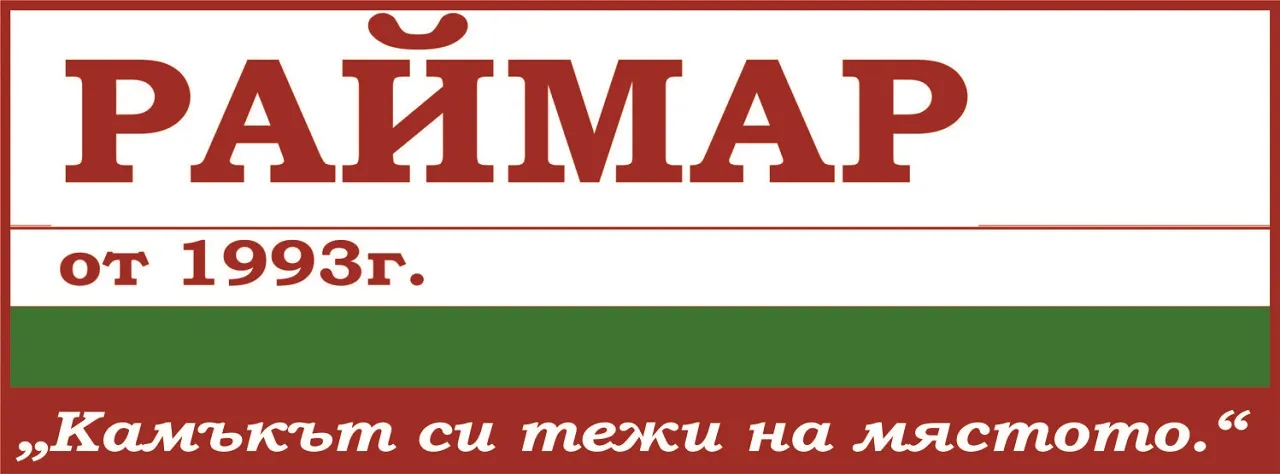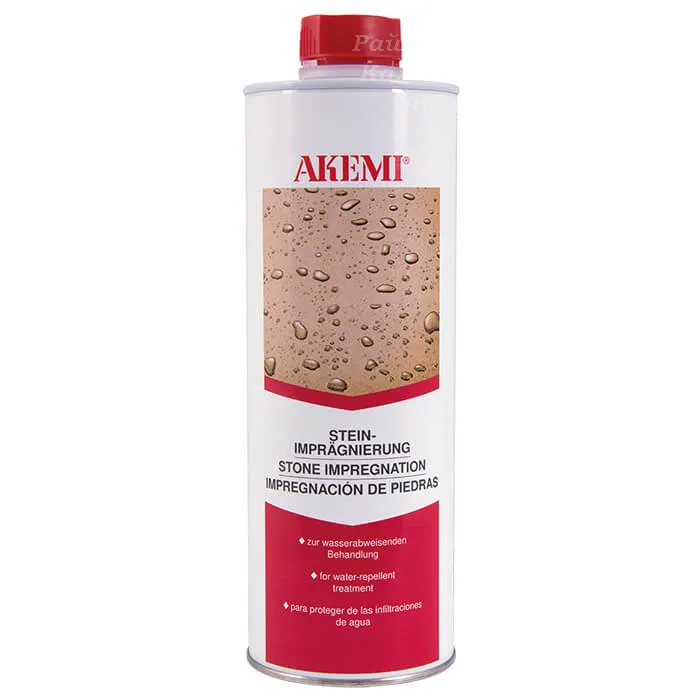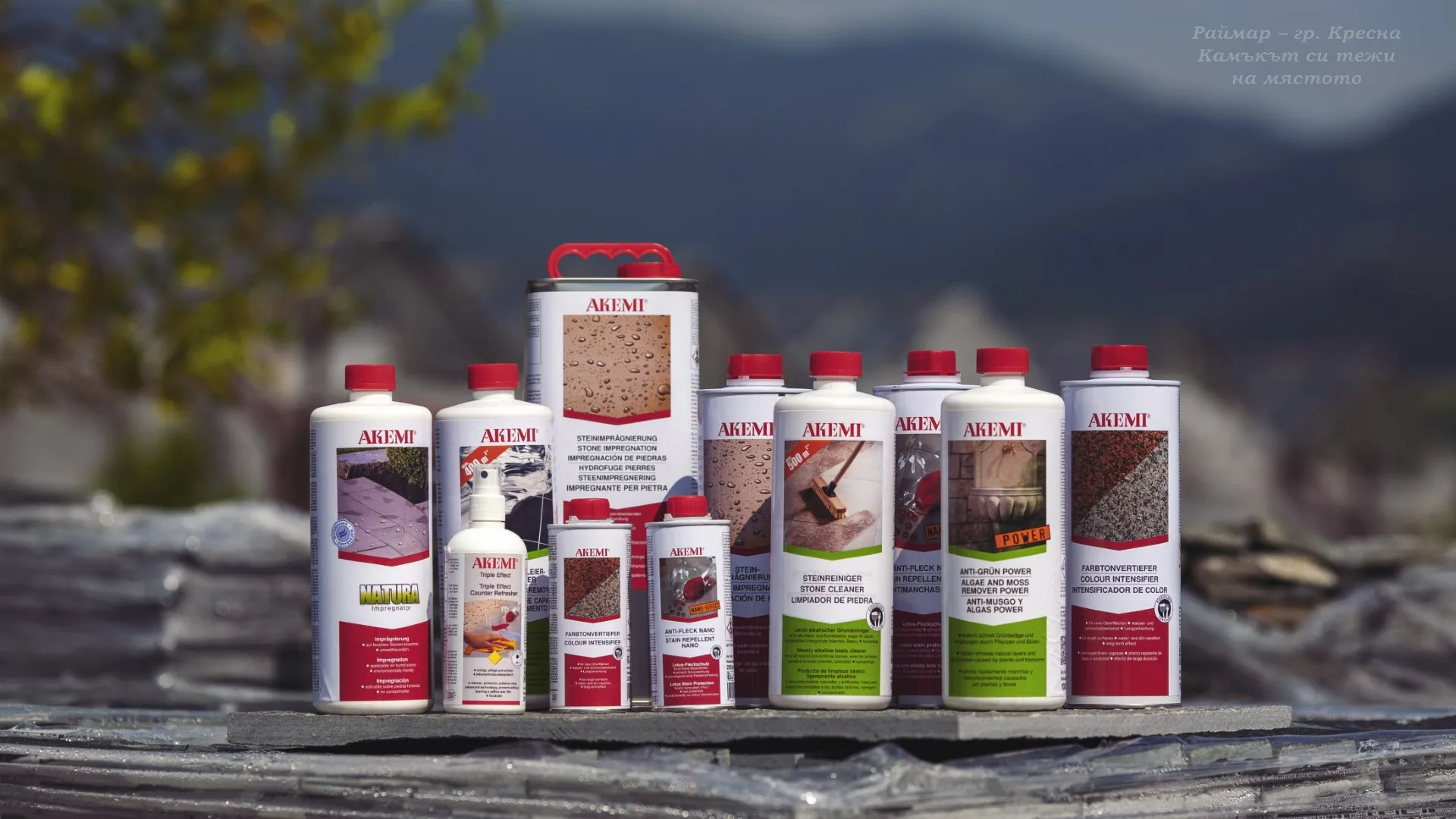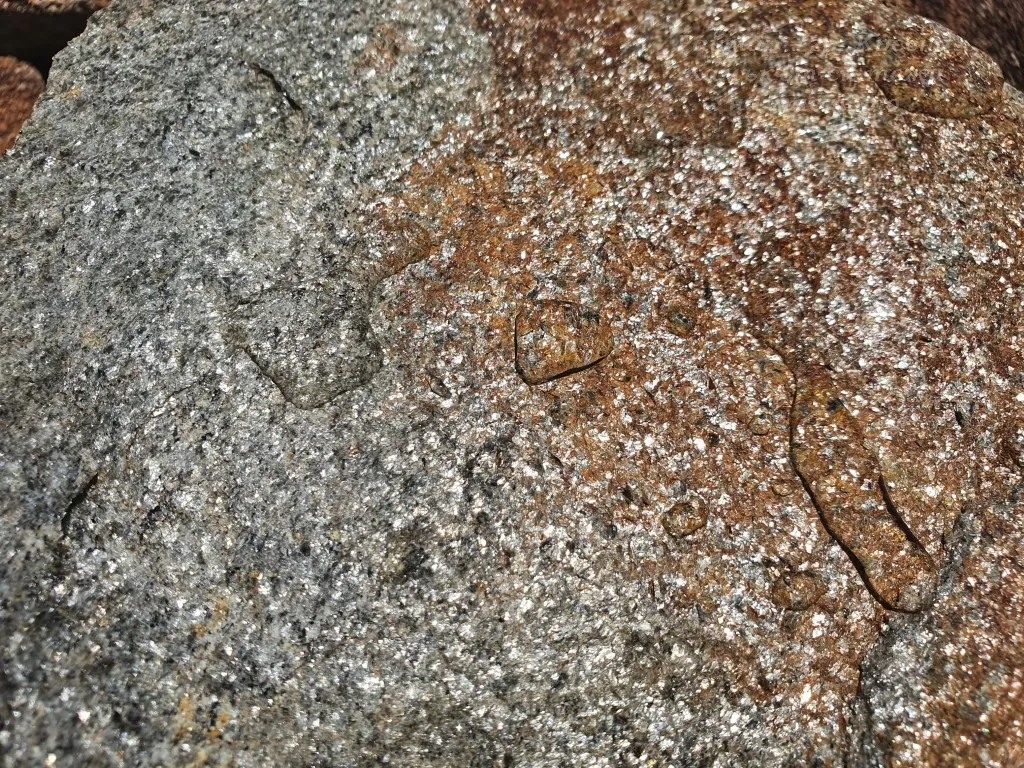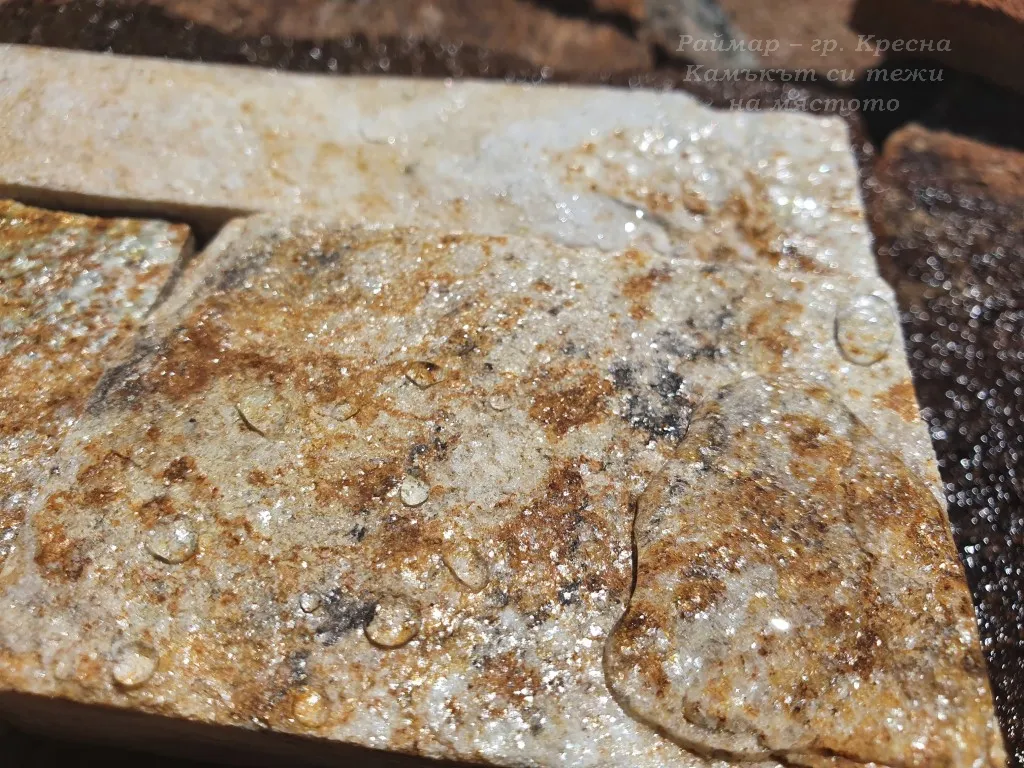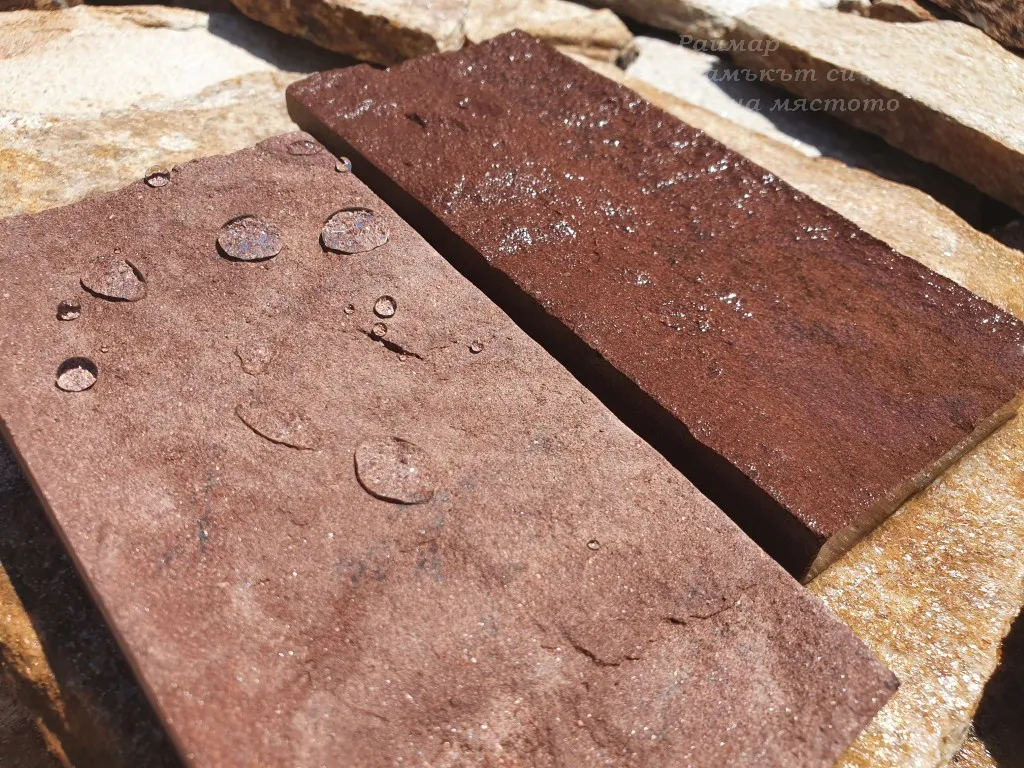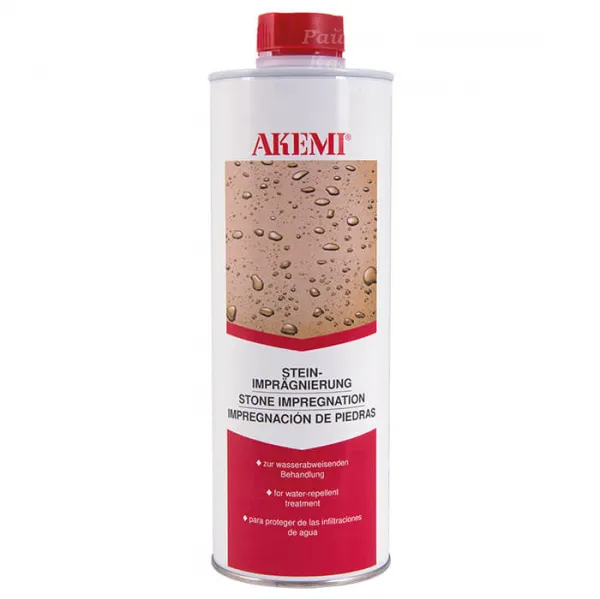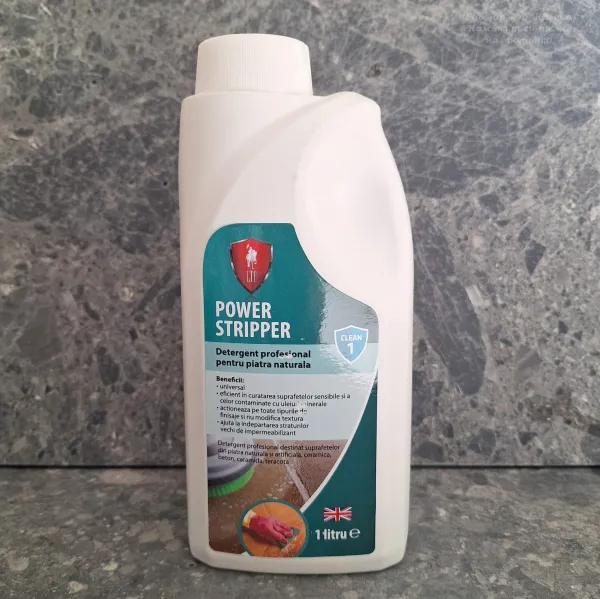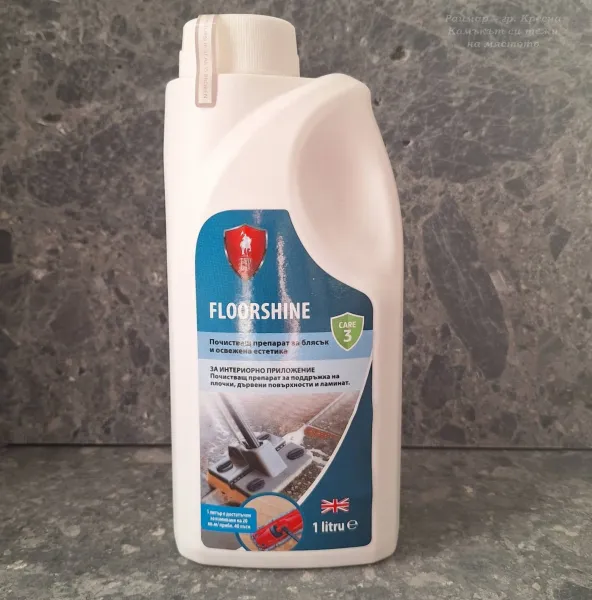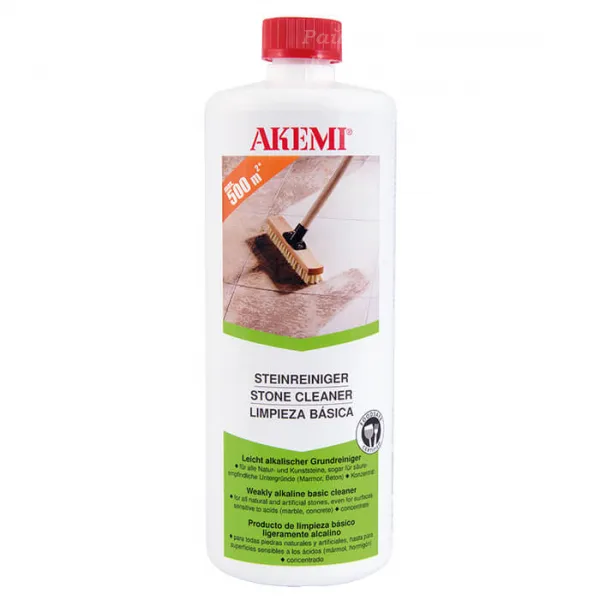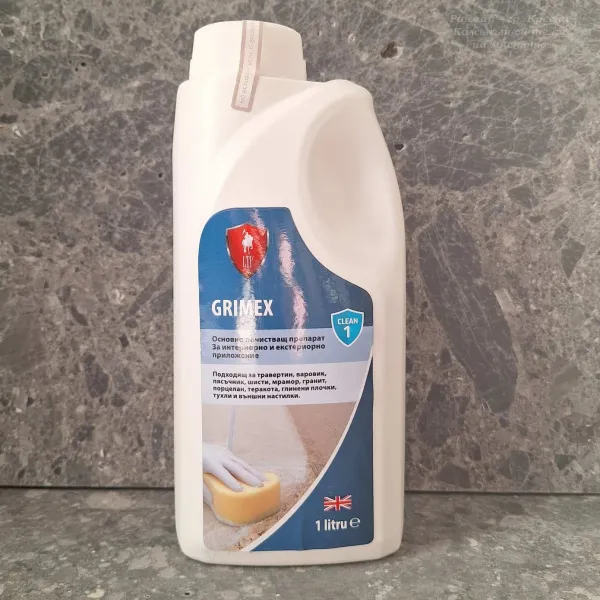Universal stone sealer AKEMI
| Available | |
| Price / Unit | Price for 1 piece |
| Package |
Universal Stone Impregnator AKEMI
The impregnator penetrates deeply into the stone, forming a protective layer against water and dirt while maintaining the stone's breathability. It protects exterior facades and pavements from heavy rain, repelling water and dirt, and greatly facilitates the maintenance of stone in both interior and exterior settings.
Application Area:
The AKEMI Stone Impregnator is used to treat absorbent mineral building materials such as natural and artificial stones (polished, honed, or rough surfaces of marble, limestone, granite, gneiss, Terrazzo, unglazed ceramic tiles, etc.) to repel water and dirt.
Technical Characteristics:
AKEMI Stone Impregnator is a ready-to-use product based on oligomeric alkylalkoxysilanes. The product penetrates deeply into the stone thanks to its capillary properties. During the catalytic reaction, polysiloxane is formed, and a reaction also occurs with the silicate substance of the stone. The result is the long-term high effectiveness of the impregnator. The product is characterized by the following properties:
● Maximum reduction of water and dirt penetration under moisture influence
● Fast moisture release during drying due to its high vapor permeability
● Preservation of breathability, as it does not form a sealing layer
● UV resistant
● Generally does not change the stone's color (preliminary test recommended)
INSTRUCTIONS:
● If you clean the surface beforehand, it requires 1-2 days to dry (depending on the temperature).
● Preventive treatment with AKEMI Universal Stone Impregnator prevents the formation of stains or significantly slows down their appearance. Any stains that do appear can be cleaned much more easily.
● Inappropriate or aggressive cleaning agents, as well as pressure-operated cleaning devices, can damage the impregnating layer and the stone. Therefore, it is recommended to use AKEMI Stone Cleaner for stone maintenance.
● Existing joints should be tested for solvent intolerance before using the product. If wetting agents were used for smoothing the joints, they should be removed before impregnation.
● The stone impregnator is not suitable for glazed or non-absorbent surfaces or gypsum.
● Residues of the product on the surface can cause stains and hazing.
● Protect your hands when working; use gloves.
● Protect the objects to be treated from direct sunlight.
● Adhered surfaces, solvent-sensitive plastics, window glass, painted parts, and objects near the work area (e.g., cars or green areas) should be protected (covered).
● When properly applied, the cured product is not harmful to health.
● Evaluating the product solely by observing water accumulation on the surface is not a sufficient criterion for determining its effectiveness, as this is only a surface effect. Due to dust deposits, this effect may be significantly reduced or disappear altogether.
● For most stone surfaces, there is no noticeable color change (or it is minimal). With quartzite and serpentine, a significant color change is observed. Therefore, it is recommended to test the product in an inconspicuous area before use.
● For proper disposal of the packaging, ensure it is completely emptied.
Technical Data:
Coverage: Approximately 1-15 m²/l, depending on the stone's absorbency.
Color: Transparent to yellowish.
Density: Approximately 0.76 g/cm³.
Note:
The above instructions are based on AKEMI's current level of development and application technology. Since the practical application of the product is beyond the manufacturer's control, no claims can be made against the manufacturer based on this document.
AKEMI was founded in 1933 in Dresden by Erich Höntsch, who, following his passion for chemistry, created the first polyester resin-based adhesives, laying the foundation for the company's long-term global success with its two-component adhesive and filling systems based on polyester and epoxy resins. The initial name (AKEMA) was inspired by the name of the daughter of a close friend, the Japanese consul in Berlin. Later, in 1952, he renamed it to AKEMI. The reason for this was the still ongoing biennial Chemical Technology, Environmental Protection, and Biotechnology Exhibition ACHEMA in Frankfurt.
After World War II, the company's headquarters moved to Nuremberg, where the rich and specialized product range is still produced under strict control according to the requirements of the European Community.
Customer Feedback:
"A month ago, I purchased a universal stone impregnator from you. I want to share the exceptional quality of the impregnator. After treatment, water does not stay on the treated surfaces at all, and the stone's colors remain unchanged. Thank you for the prompt delivery as well."




 Български
Български
